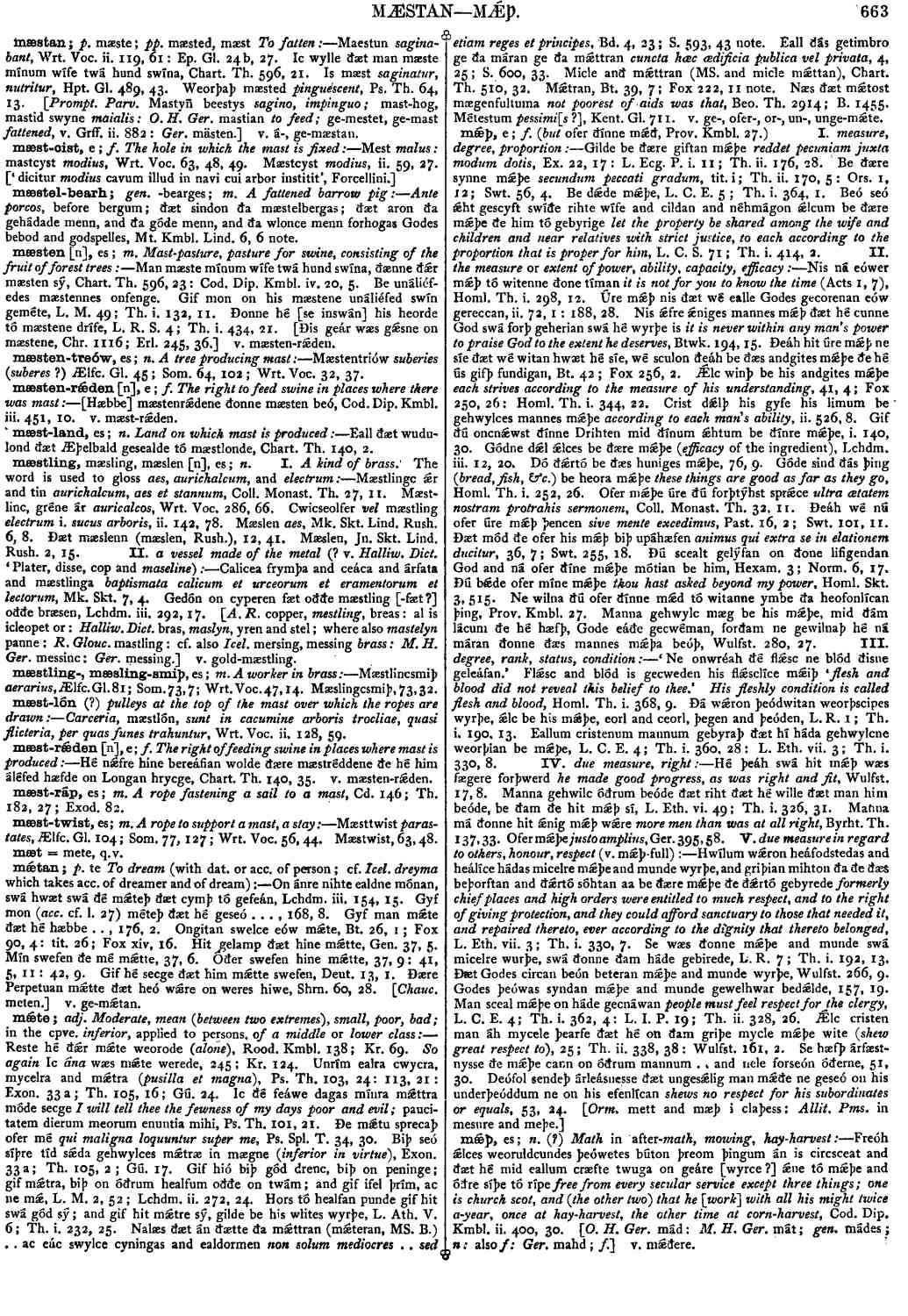mǽte
- adjective
-
Reste hé ðǽr mǽte weorode(alone),
- Rood. Kmbl. 138 ;
- Kr. 69.
- So again
Ic ána wæs mǽte werede,
- 245 ;
- Kr. 124.
-
Unrím ealra cwycra, mycelra and mǽtra
(pusilla et magna),
- Ps. Th. 103, 24: 113, 21: Exon. 33 a ;
- Th. 105, 16 ;
- Gú. 24.
-
Ic ðé feáwe dagas mínra mǽttra móde secge
I will tell thee the fewness of my days poor and evil;
paucitatem dierum meorum enuntia mihi,
- Ps. Th. 101, 21.
-
Ðe mǽtu sprecaþ ofer me
qui maligna loquuntur super me,
- Ps. Spl. T. 34, 30.
-
Biþ seó síþre tíd sǽda gehwylces mǽtræ in mægne
(inferior in virtue),
- Exon. 33a ;
- Th. 105, 2 ;
- Gú. 17.
-
Gif hió biþ gód drenc, biþ on peninge; gif mǽtra, biþ on óðrum healfum oððe on twám; and gif ifel þrím, ac ne mǽ,
- L. M. 2, 52 ;
- Lchdm. ii. 272, 24.
-
Hors tó healfan punde gif hit swá gód sý; and gif hit mǽtre sý, gilde be his wlites wyrþe,
- L. Ath. V. 6 ;
- Th. i. 232, 25.
-
Nalæs ðæt án ðætte ða mǽttran (mǽteran, MS. B. ) . . ac eác swylce cyningas and ealdormen
non solum mediocres . . sed etiam reges et principes,
- Bd. 4, 23 ;
- S. 593, 43 note.
-
Eall ðás getimbro ge ða máran ge ða mǽttran
cuncta hæc ædificia publica vel privata,
- 4, 25 ;
- S. 600, 33.
-
Micle anð mǽttran (MS. and micle mǽttan),
- Chart. Th. 510, 32.
-
Mǽtran,
- Bt. 39, 7 ;
- Fox 222, 11 note.
-
Næs ðæt mǽtost mægenfultuma
not poorest of aids was that,
- Beo. Th. 2914 ;
- B. 1455.
-
Métestum
pessimi[s
?],- Kent. Gl. 711.
Bosworth, Joseph. “mǽte.” In An Anglo-Saxon Dictionary Online, edited by Thomas Northcote Toller, Christ Sean, and Ondřej Tichy. Prague: Faculty of Arts, Charles University, 2014. https://bosworthtoller.com/22243.
Checked: 1